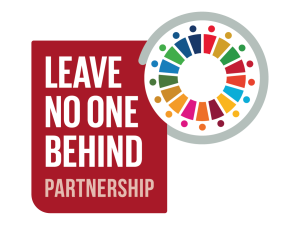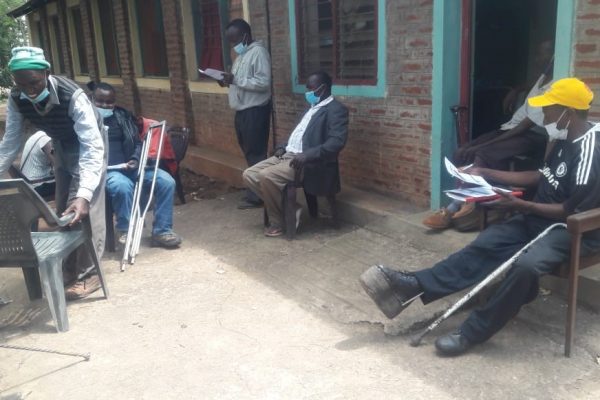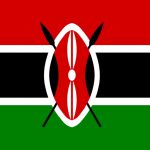Citizen-Generated Data Can Help to Leave No One Behind
07 March 2023, by The International Civil Society Centre and UN ESCAP
Citizen Generated Data (CGD) has the potential to reach the most marginalised populations, fill data gaps on sensitive areas, strengthen relationship between users and producers, and increase trust in official statistics. However, sufficient resources, capable and committed teams, and support from heads of civil society organizations, international organizations and governments are crucial for wider CGD application to ensure inclusive data collection and leave no one behind.
Inclusive Data as a Strategic Tool for Building Back Better After the Pandemic.
10 August 2022, by Chandani Lopez Peralta
On July 12, the Centre and LNOB partnership co-hosted an official side event at the 2022 High Level Political Forum together with GIZ and UNSD. Topic was “Inclusive data as a means to build back better after the pandemic.” The event started with a guest input from UNSD and two national case studies from partner countries. The presentations were followed by a panel discussion where global experts discussed about the advantages and limitations of citizen-generated data.
A Global Partnership Yields Results: Local Change and Official Recognition for Civil Society Data
14 February 2022, by Davie Malungisa on behalf of the LNOB Partnership
The Bern Data Compact represents a major milestone towards the recognition of community-driven data in official processes, and its role in filling vital information gaps for sustainable development.
Achieving official recognition of citizen-generated data as a crucial tool to ensure no one is left behind in fulfilling each SDG has been a key goal of the Leave No One Behind Partnership since its founding in 2017, but that work didn’t start nor end at the 2021 World Data Forum.
Trapped in the Intersection: Youth, Gender Inequality, and Discrimination in Surkhet District, Nepal
1 November 2021, by Davie Malungisa on behalf of the LNOB Coalition in Nepal
A recent report from the Leave No One Behind Consortium in Nepal has uncovered how gender discrimination continues to restrict access to higher education and vocational skills training for girls.
This set of obstacles intersects with poverty and caste discrimination to create a series of traps for many women throughout Nepal.
COVID-19 Wreaking Havoc on Bangladesh’s Poor: A Story of Food, Cash, and Health Crises
31 August 2021, by Davie Malungisa on behalf of LNOB Coalition in Bangladesh
This is the second story from our new series of articles, focussing on the work of our partners in Bangladesh. The article highlights the situation of ten marginalised groups in the country, including ethnic minorities (indigenous peoples), river gypsies, elderly people involved in begging, people living with HIV/AIDS, people living in hard-to-reach areas (char, haor, hills, islands, forests, etc.), sex-workers, and Dalits.
An Unequal Pandemic: Collaborative report on marginalised groups amidst the pandemic
13 July, by Peter Koblowsky
The report is a collaborative effort of the two networks of the Leave No One Behind Partnership and the Inclusive Data Charter, coming together as the “Civil Society Collaborative on Inclusive COVID-19 Data“. More than 20 CSOs representing and working with diverse marginalised communities engaged in this joint endeavour. The report harnesses the potential of data generated by communities and civil society organisations (CSOs) to create a holistic understanding of how people who have been marginalised have been impacted by the COVID-19 pandemic, their responses and resilience.
No more pushing us back! Towards Better Data By and For People with Disabilities in Kenya
08 July 2021, by Davie Malungisa on behalf of LNOB Coalition in Kenya
This is the first story from our new series of articles, focussing on the work of our partners in Kenya. The article highlights the situation of people with disabilities and how the Kenyan LNOB coalition supports their empowerment.
Harnessing the Power of Community-Driven Data
08 July 2021, by Davie Malungisa on behalf of LNOB Partnership
The Leave No One Behind partnership is launching a series of articles, focussing on the work of its local partners in Bangladesh, India, Kenya and Nepal. Also, the articles will provide deeper insight into our methodological approach and joint advocacy work at the global level.
How to use community data to deliver Agenda 2030
02 March 2021, by Sam Wozniak, Development Initiatives
Community data has a key role to play in delivering Agenda 2030’s universal pledge to leave no one behind. It can help fill data gaps on marginalised groups in the monitoring and review of the Sustainable Development Goals, equipping decision-makers and policy-makers with evidence to ensure resources reach and benefit those most in need.
Advancing CSOs’ Role in SDGs to Protect Marginalized Communities in Viet Nam
24 November 2020, by Linh Nguyen, Management and Sustainable Development Institute (MSD)
Civil society organisations (CSOs) in Viet Nam transition from focusing only on poverty alleviation to providing a range of services to meet the needs of marginalized communities, conduct advocacy, raise awareness and work to hold the government and other stakeholders accountable.

















